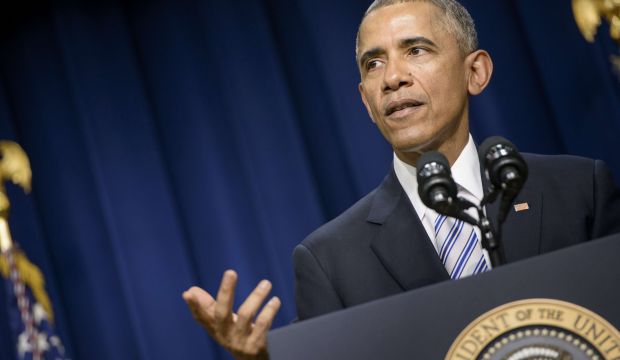The front cover of this week’s issue of the Economist reads: “Losing the Middle East,” in reference to several disputes that have plagued Arab–US relations since the eruption of the wave of upheavals known as the Arab Spring. Disputes between the two sides have taken a public turn as they began to adopt contradictory policies, something both were keen to avoid, at least over the last three decades.
Barack Obama’s administration, which takes pride in managing to disengage Washington from foreign adventures for the first time in a long period, has not recovered from the complex it developed following its wars in Iraq and Afghanistan, where it lost thousands of soldiers and failed to make any political gains. The situation in Iraq is still chaotic and the conflict there has taken a sectarian dimension. The Taliban have far from disappeared in Afghanistan; in fact they have extended their presence to Pakistan’s tribal areas.
The Obama administration, for a while, seemed set on overcoming the Iraq–Afghanistan complex in Syria, only to backtrack at the eleventh hour. Washington’s policy reversal has led Syria to become fertile ground for terrorism, attracting fighters from around the world and posing a threat to global security. Several Arab countries had warned against just such a scenario early on in the Syrian crisis.
Some Western analysts are promoting the theory that the Middle East is losing its significance as an energy powerhouse after new technology used in shale oil extraction made the United States a swing producer that is no longer dependent on imports to meet its oil needs. The proponents of this theory overlook the fact that developed countries rely on the Middle East for oil, an important factor in the stability of the world economy. This is not to mention the high cost of extracting shale oil, a process that some researchers suspect encourages seismic activity.
The bottom line is that America will not leave the region as it still has massive interests there. Moreover, Arabs would like Washington to remain engaged in the Middle East given the important role it has played in the security of the region. Disputes between the two sides can be pragmatically dealt with by promoting common interests and identifying the points where both sides differ. An example of such pragmatism is the decisive position the Gulf states, particularly Saudi Arabia, have taken in Egypt by siding with the public against the Muslim Brotherhood. The Gulf states did not wait for Washington’s signal—the US, for unknown reasons, positioned itself nearer to the Brotherhood under the illusion that a deal could be struck with some of the Islamist currents.
It appears that both sides have reached an undeclared understanding in terms of adopting some sort of a pragmatic approach, the Economist said. According to the weekly magazine, while Washington sides with Iran in Iraq, it takes a contradictory position in Syria. The same applies to Arabs who despite their dislike for some of Washington’s foreign policies seem to have decided to live with it.
Most importantly, Arabs need to adhere to their interests. Some cases of Western interventions have proved catastrophic, as is the case in Iraq whose state institutions have been dismantled its military disbanded. Western intervention also backfired in Libya where chaos reigned as the North African country became a magnet for global terrorism groups.
